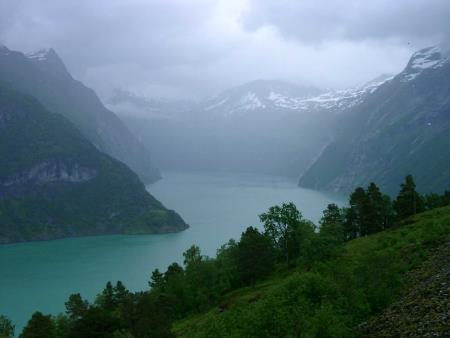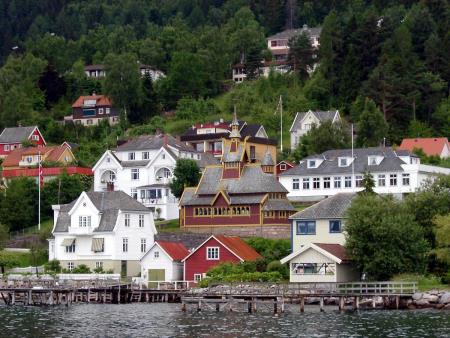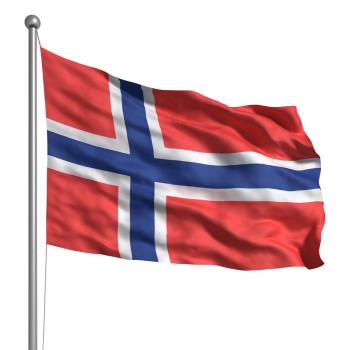find your perfect postgrad program
Search our Database of 30,000 Courses
Postgraduate Study in Norway
Find courses in NORWAYNorway is a coastal country and shares a border with Sweden – this is in fact the longest uninterrupted border in Europe. Norway is the second least densely populated country in Europe, and is well known for its stunning and remote countryside and fjords. Although it is arguable best known for its frozen fjords and glaciers, Norway does actually have a number of different habitats and though the winters are cold, it does experience all four seasons.
Between May and July, the sun never sets completely in the areas above the Arctic Circle earning it the title of the Land of the Midnight Sun. In areas south of the circle, this leads to around 20 hours of sunlight a day. Of course, between November and January, the opposite happens – with the sun never rising – making the days very dark and practically indistinguishable from the nights.
Norway is a very environmentally friendly country, placing third in the 2012 Environmental Performance Index – with 99% of its electricity coming from hydropower.

The UN has ranked Norway as having the highest standard of living in the world for four years running, much of this coming from its educational levels.
The official language is Norwegian, but it recognises Northern Sami, Lule Sami, Southern Sami and Kven as regional languages.
The currency of Norway is the kroner.
Norwegian universities & education
Norway is home to eight universities, nine specialised university institutions, 20 state university colleges, two national academies of the arts, as well as private institutions. Between these there are over two hundred masters level programs available to study in English. Two of these universities (the University of Oslo and the University of Bergen) are in the top 200 in the QS University World Rankings. You can opt to study anywhere from the Svalbard Islands to the capital city, Oslo – depending on what sort of experience you want.
Norway is signed up to the Bologna Process – indeed, it has been a member since the beginning – meaning any degrees you earn are compatible with the education system in other European countries.
Generally, you application deadline to fall between the beginning of December and mid-March for courses due to start in August/September, but this varies from university to university – so do check the website of the university you are interested in applying to. It’s always worth getting organised early, just in case.
Tuition fees & funding
 Most universities in Norway are public, and they don't charge tuition fees – regardless of whether you’re a local or international student. However, there is a semester fee of around €50. The semester fee goes to the student union, and this will often come with benefits. These benefits might include access to sports facilities, campus-based health services, discount on public travel and food, and access/lower prices to cultural events.
Most universities in Norway are public, and they don't charge tuition fees – regardless of whether you’re a local or international student. However, there is a semester fee of around €50. The semester fee goes to the student union, and this will often come with benefits. These benefits might include access to sports facilities, campus-based health services, discount on public travel and food, and access/lower prices to cultural events.
However, due to this, only Norwegian students can get loans or grants from the state, meaning you will have to source your own living costs and will struggle to get any funding from Norway.
In addition, there are some specialised programs that will charge tuition, so check your preferred course to see what the situation is.
The cost of living in Norway is high – so although you may well enjoy a tuition-fee-free education – you can expect to have reasonably large outgoings in terms of living costs.
Visas & immigration
If you are an EU/EEA student, then you don’t need a student visa in order to go to university in Norway, however you will need a residence permit. In order to be granted this you will have to prove you have the appropriate financial resources to study in Norway – in fact you will be expected to provide evidence of roughly €1,200 per month. If you plan on earning this through work you need to provide evidence of your employment.
If you are from outside the EU/EEA, then you will be required to submit your application in person to a Norwegian Foreign Mission. There will be a processing fee which can vary from place to place and based on the exchange rate.
 Living as a student in Norway
Living as a student in Norway
Whilst tuition fees are almost non-existent, it can be expensive to live in Norway. Since there are no state-based loans of grants, you will have to look elsewhere. Some places to start looking include the High North Fellowship Program (US, Canada and Russia), the Quota Scheme (developing countries/countries in Eastern Europe and Central Asia), and the Research Council of Norway. It’s also worth contacting your planned university to see if there are any other funding opportunities that they are aware of.
For students outside the EU/EEA, it’s possible to work up to twenty hours a week with a work permit. In order to get a work permit, your university needs to approve that it won’t affect your studies. For students within, a work permit is automatically granted alongside a student residence permit and you don’t need to show any proof from the institution.
Most universities provide housing, which is cheaper than private options. The more popular areas come in at around €360-400 a month, and private rentals can go up to €500. Students outside the EU can access healthcare through the National Insurance Scheme, though students with an EHIC can access healthcare as they would expect- with appropriate fees.
Other than this, it’s a matter of choosing where to go. The main cities are known for their cultural variety, as well as how close they are to the outdoors – meaning both sports and the arts are within reach. Just bear in mind that the highest up the country you go, the less sun there is in winter and the more sun in summer! The costs of going out, eating and drinking can be rather high, in fact it isn’t uncommon for people to go to neighbouring countries to buy cheaper alcohol!
Norway & the Sami
The Sami are the people indigenous to Norway, having been in Northern Scandinavia since around 11,000 years ago – in fact the first historical mention of them in text can be found in Tacitus, around 98CE. One central aspect to the Sami culture is reindeer herding, and nowadays this is now legally reserved only for Sami people in many Nordic countries. The Sami were originally semi-nomadic – and even today they often maintain this lifestyle. Partly as a result of this their ancestral lands span approximately 150,000 square miles across the Nordic countries.
Karasjok is the Sami capital, home to almost 3,000 people along with the Sami Parliament of Norway – it’s also home to around 60,000 reindeer in the autumn and winter months. For those interested in Sami culture, the Sápmi Culture Park is a great place to find out about their history and culture.
There are three important Sami festivals throughout the year. Firstly, there is the Sami National Day which is the 6th of February, and this honours the date the first Sami Congress was held in 1917. For a people whose culture was in danger of dying out due to oppression, this is an important date indeed. There is also the Easter Festival which celebrates Sami culture and reindeer racing! Finally there is the Riddu Riddu Sami Festival which is devoted to music, film and art.
PLEASE NOTE: As a result of Brexit, from Autumn 2021 postgraduate students from the European Union studying at a UK university will be charged the same tuition fees as international students. Meanwhile, UK students studying their postgraduate course at a European university are also likely to incur higher tuition fees than their EU counterparts. It is advisable to check with the individual universities in the UK and Europe for up-to-date information on tuition fees for all postgraduate programs.
Apply for a Postgrad Solutions Study Bursary
